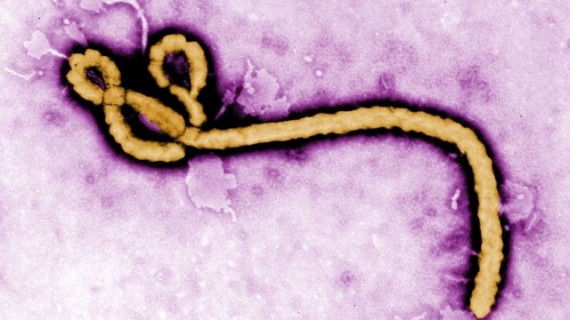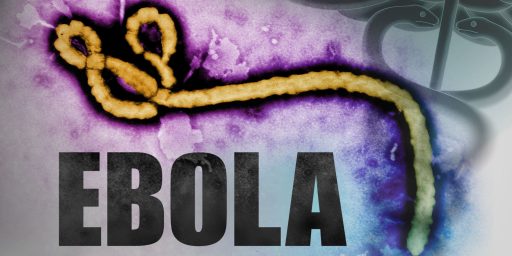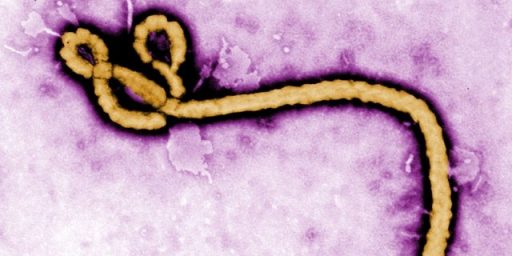W.H.O. Declares Liberia To Be Ebola Free
One of the nations that was the focal point of last year’s Ebola outbreak has been declared free of the disease:
The World Health Organization declared Liberia free of Ebola on Saturday, making it the first of the three hardest-hit West African countries to bring a formal end to the epidemic.
“The outbreak of Ebola virus disease in Liberia is over,” the W.H.O. said in a statement read by Dr. Alex Ntale Gasasira, the W.H.O.’s representative to Liberia, in a packed conference room at the emergency command center in Monrovia, the capital.
Just prior to Dr. Gasasira’s statement, Luke Bawo, an epidemiologist, showed a map depicting all of Liberia in green with the number 42 superimposed on it. This represented that two maximum incubation periods of the virus, a total of 42 days, had passed since the safe burial of the last person confirmed to have had Ebola in the country, fulfilling the official criteria for concluding that human-to-human transmission of the virus has ended.
The room, packed with reporters and dignitaries including the U.S. ambassador to Liberia, Deborah R. Malac, burst into applause, according to a health official who was present.
The president of Liberia, Ellen Johnson Sirleaf, then held a moment of silence for those who had died. She thanked Liberians who had fought Ebola as well as the country’s international partners and others around the world, “whose hearts were with us.” She added, “Let us celebrate, but stay mindful and vigilant.”
According to the W.H.O., there were more than 3,000 confirmed Ebola cases in Liberia, and a further 7,400 suspected or probable cases, with more than 4,700 deaths estimated to have occurred since the outbreak was declared there in March of 2014. Among the dead were 189 health care workers.
“I’m particularly struck by the significant progress we have made as a country and as a people,” Tolbert Nyenswah, a senior Liberian health official who heads the country’s Ebola response efforts, said Thursday in an interview. The end of the epidemic was, he said, “a victory for Liberia and Liberians. The only caution is that our subregion is not free yet, and we are very much concerned about Guinea and Sierra Leone.”
Last week those countries, which share borders with Liberia, each reported nine cases of the disease, the lowest weekly total this year. Mr. Nyenswah said Liberia would continue many of the control measures that helped the country vanquish the epidemic, including surveying border areas for sick travelers, testing all dead bodies for the virus and conducting burials with specially trained teams wearing full protective gear.
“We are being extremely cautious,” Dr. Bernice Dahn, the country’s incoming health minister, said Friday in an email. She added that the country’s priority now is to build its critically deficient health care workforce to provide Liberians with a higher standard of care and help guard against future outbreaks. “Ebola highlighted our health system’s weaknesses,” she said.
A key question for Liberians is whether the end of the outbreak will draw foreign companies back to the country, whose economy has been battered. British Airways, for instance, which came under fire from aid officials after it and several other airlines stopped flying to Liberia and Sierra Leone last August, has not resumed services.
We keep our global route network under constant review and always take a range of factors into account before we make any changes,” a spokeswoman for the airline said Friday in an email. Kenya Airways restored flights to Liberia several weeks ago. Only Brussels Air and Royal Air Maroc, the Moroccan national carrier, continued commercial air service to the country during the epidemic.
Last week, the U.S. Centers for Disease Control and Prevention stopped advising U.S. residents to avoid nonessential travel to Liberia, instead recommending that they “practice enhanced precautions” when going there.
“The country can get back to business,” Dr. Thomas R. Frieden, director of the C.D.C., said Friday in an interview. “It’s a tribute to the enormous hard work done by Liberians, by the C.D.C., by partners throughout the U.S. government and the international community.”
Last year’s outbreak isn’t officially over yet, of course. As noted, there are still active and new cases of the disease being found in Ghana and Sierra Leone, which means that the restrictions that apply to those countries are still in place, among other things. Even there, though, the disease is not spreading nearly as quickly as it was during the height of the crisis and it does seem like public health officials are seeing the light at the end of the tunnel.
What all of this shows us, of course, is that, for the most part, the efforts that international authorities put into effect once the crisis became serious have proven to be quite successful in dealing with and eradicating the disease. This should be a lesson for future outbreaks that those those protocols should be put into effect far sooner in order to prevent a rapid spread of the disease the next time this happens, and history seems to make clear that there will be a next time. It also seems to make clear that much of fear mongering that we were seeing about the disease becoming airborne, or otherwise far easier to spread, proved to be utter nonsense. Fortunately, Ebola remains the virus we have always thought that it was and, as long as that’s the case, we know how to treat it and to prevent it from escalating to pandemic or epidemic proportions.




I have the utmost respect for all those people and organizations that made this possible. I can only hope that efforts to find a vaccine or drugs that mitigate the disease will continue. Another pandemic is always just around the corner. The bird flu epidemic in chickens and turkeys in the Midwestern United States is somewhat frightening. It hasn’t jumped to humans yet but that has happened before.
Good news from Liberia. Big thumbs up for the doctors, scientists, and other workers who achieved this!
I am still supposed to be in fear of decapitation by ISIS and having my country taken over by Obama’s secret armies currently massing in abandoned Walmarts, right?
I am curious whether the fearmongering-industrial complex in this country is coordinated by some supervillains or is just an ad hoc creation.
@Slugger:
Personally I think it’s the result of the 24/7 news channels/cycle combined with danger/sex/violence sells.
@Matt:
THIS. We’ve seen this before with bird flu, with various drug “crazes” (some of which don’t actually exist), with teens doing whatever. Here they had a genuinely dangerous disease and they played it to the hilt (while ignoring our annual flu epidemic).
Hopefully, Liberia can now get back to rebuilding. The impact of the Ebola outbreak is going to be much more than just the disease. Healthcare resources, of which they had few to begin with, are gutted. The country is reeling. The work ahead is going to be just as tough.